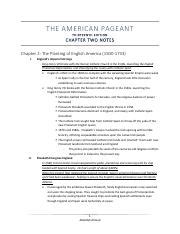European Explorations
Christopher Columbus
* Italian explorer sponsored by Spain
* Sailed west in 1492 seeking a westward route to Asia
* Landed in the Caribbean, believing he had reached the Indies
* Explored other islands and claimed them for Spain

Vasco da Gama
* Portuguese explorer sailed around the southern tip of Africa
* Reached India in 1498, opening a new sea route to Asia
Ferdinand Magellan
* Portuguese explorer hired by Spain
* Led the first expedition to circumnavigate the globe
* Killed in battle in the Philippines
Spanish Exploration
* Founded settlements in Mexico, Central America, and Peru
* Exploited indigenous populations for labor and resources
* Introduced Catholicism and European diseases
English Exploration
* Sir John Cabot explored North America in 1497
* Roanoke Colony, established in North Carolina in 1585, disappeared mysteriously
* Jamestown, founded in 1607, became the first permanent English settlement
French Exploration
* Explored the Mississippi River valley and claimed it for France
* Founded New Orleans, Louisiana, in 1718
New World Encounters
Native American Populations
* Estimated 50 million Native Americans lived in North America before European contact
* Varied cultures, languages, and political structures
* Interacted with Europeans in complex ways
Cultural Exchange
* Europeans brought new ideas, technology, and goods
* Native Americans shared their knowledge of the land, plants, and animals
* Exchange resulted in cultural fusion and conflict
Demographic Impact
* European diseases decimated Native American populations
* Warfare and displacement further reduced numbers
* Indigenous population decreased by 90% in the century following European contact
Religious and Cultural Conflicts
* Europeans attempted to convert Native Americans to Christianity
* Native Americans resisted cultural assimilation
* Tensions and conflicts escalated
Colonial Society
The Southern Colonies
* Developed plantation economy based on cash crops (tobacco, rice, indigo)
* Labor-intensive system worked by slaves and indentured servants
* Characterized by hierarchical social structure
The New England Colonies
* Founded by Puritans seeking religious freedom
* Developed a commercial economy based on trade, shipbuilding, and fishing
* Emphasized education and civic participation
The Middle Colonies
* Mixed population of ethnic groups
* Developed a diverse economy based on agriculture, trade, and manufacturing
* Served as a buffer zone between the South and New England
The American Revolution
Causes of the Revolution
* Political: British policies seen as oppressive and restrictive
* Economic: Regulation of trade and taxation without representation
* Social: Growing sense of American identity and independence
Key Events
* 1773: Boston Tea Party
* 1774: First Continental Congress
* 1775: Outbreak of armed conflict at Lexington and Concord
* 1776: Declaration of Independence
American Military Strategy
* Guerrilla warfare and hit-and-run tactics
* Use of native knowledge and terrain
* Support from European allies (France, Spain)
British Military Strategy
* Conventional warfare and large-scale battles
* Control of major cities and ports
* Reliance on Hessian mercenaries
Outcome of the Revolution
* American victory in 1783
* Recognition of American independence
* Treaty of Paris established new boundaries for the United States
The New Nation
Articles of Confederation
* First constitution of the United States
* Weak central government with limited powers
* Proved inadequate to address the problems of the nation
Constitutional Convention
* Gathered in Philadelphia in 1787 to revise the Articles of Confederation
* Drafted a new constitution based on federalism and separation of powers
Ratification of the Constitution
* Intense debates and opposition
* Ratified by 9 states in 1788
* Went into effect in 1789
Bill of Rights
* First ten amendments to the Constitution
* Guaranteed fundamental freedoms and protections for citizens
* Safeguarded individual rights
